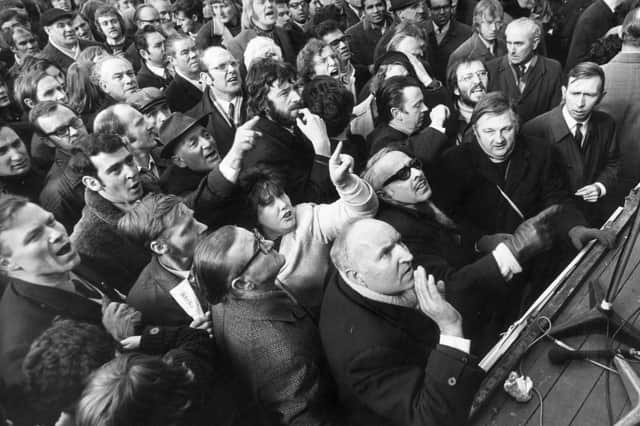Why trade unions are starting to sound appealing after years of being put off by shouty old men – Laura Waddell


Looking back across my working life, particularly teenage years clocking into retail, hospitality, and call centre shifts, I could have done with a bolstering force against shoddy conditions. But I never considered joining a union. It didn’t even cross my mind.
The only message I received from unions was that they weren’t for me. The equal pay shame of North Lanarkshire and Glasgow Councils showed how west of Scotland working-class women had been undervalued and let down.
Advertisement
Hide AdAdvertisement
Hide AdWhen the vocabulary of organising crept up at university protests, it baffled me, and seemed, more than anything, to separate those already in the know from those who didn’t belong.
I once sat on a panel of three women writers discussing the theme of protest, heckled the whole way through by an ornery poet who’d already had his turn at the mic. “Ladies,” he grizzled, “you are speaking very beautifully, but you should be talking about unions.”
As he stood raging away, he was the stereotypical figure of the shouty old union man come alive. But I’ve seen young men curl their lip in the exact same way at what they refer to as ‘identity politics’, disinterested in the struggle of anyone outside their nostalgic, outdated conception of the worker as white, male breadwinner.
Enter Make Bosses Pay, the newly released book by journalist Eve Livingstone.
“Does the establishment of the weekend, won in the 1930s, resonate with a hospitality worker for whom Fridays and Saturdays are the busiest shifts of the week?” she questions.
Subtitled Why We Need Unions, it’s part persuasive primer on worker organisation, part galvanising argument for union modernisation. Recognising that the most vulnerable workers are those least likely to be union members, it identifies failings to enlist an increasingly dispersed, precarious workforce, including the first generation worse off than their parents, who are digitally oriented, increasingly diverse, and turning elsewhere for answers.
It’s also a hugely optimistic book. “It is within our power to break into unorganised sectors, prioritise liberatory politics, campaign beyond our workplaces, embrace new technologies, reimagine union structures and act as a training ground for the young working class. To do so will be the making of our movement for a whole new generation.”
For the first time, I’m listening.
A message from the Editor:
Thank you for reading this article. We're more reliant on your support than ever as the shift in consumer habits brought about by coronavirus impacts our advertisers.
If you haven't already, please consider supporting our trusted, fact-checked journalism by taking out a digital subscription.
Comments
Want to join the conversation? Please or to comment on this article.
